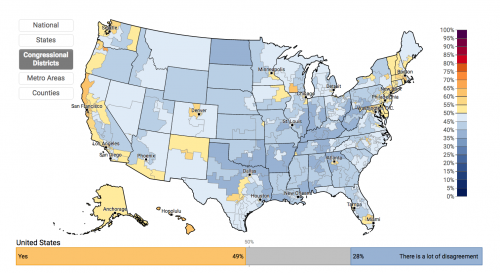You need to read about the tiny town of Whiteclay, Nebraska. It’s a moral shithole.
Whiteclay, Nebraska. 12 people. Four liquor stores. More than 42 million cans of beer sold in the last 10 years.
I do wonder what those 12 people are like, that they can unconscionably exploit people as they do. The customers for their beer are the residents of the Pine Ridge Reservation, where the descendants of Crazy Horse and Red Shirt and Sitting Bull now live. Well then, that must be the problem — don’t blame the good capitalists providing a service, it’s all the drunkards guzzling down that beer.
But this story explains why alcoholism rages through the Lakota.
On this South Dakota reservation, where the sale and consumption of alcohol has been illegal since 1889 (aside from a few months in the 1970s), the Oglala Lakota live in the poorest of America’s 3,144 counties, according to a 2014 U.S. Census Bureau report. In 2015, 55 percent of its roughly 30,000 residents were unemployed, according to the U.S. Census Bureau. A decade before, the Department of the Interior put the number at 89 percent.
Here, men die on average at age 47, according to Rainey Enjady, former interim CEO of the Pine Ridge Hospital. That’s a shorter lifespan than any other country in the world, according to the World Health Organization. Its women fare better. On average, they live to 55—on par with Angola, Nigeria and Somalia.
On this sprawling reservation dotted with doublewide trailers, the infant mortality rate was three times the national average in 2007, according to Re-Member—about the same as modern day Syria, Honduras or the Gaza Strip.
It’s an American disgrace. Right here in the heart of our country, 8 hours from where I live, good people are destitute and living in despair, while merchants sell them poison.




